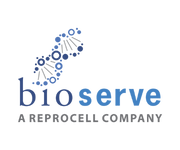Hereditary cancer predisposition risk: A Case Study
Case Details
A 50-year-old female diagnosed with breast cancer presented to us for suitable genetic testing options. She had a strong family history of discordant cancers in first and second-degree relatives. Family members were diagnosed with breast, ovarian and endometrial, colon and Renal cancers respectively. However, both parents (deceased) were noted to be free of cancer in their lifetime.

Genetic Testing:
In view of the family history there was a need to comprehensively access the role of genetic variant in cancer-related genes. Therefore, testing using Hereditary Cancer Panel was recommended. This Next Generation Sequencing (NGS) based panel covers nearly 145 of the most common cancer-related genes studied in inherited cancers.
The test results showed that she carried a pathogenic frameshift insertion variant, c.1413_1414insA (p.Pro472ThrfsTer4) in gene MSH2 in homozygous condition. The patient was found to be BRCA-negative.
MSH2 is associated with Lynch Syndrome (LS), a hereditary cancer syndrome known for increasing the risk of various cancers, including colorectal, endometrial, ovarian and others. It is unsettled whether breast carcinoma belongs to the LS tumor spectrum, but some studies have reported cumulative risk of breast cancer to 75 years of age as 12–15% across defective MMR genes. The syndrome is autosomal dominant and confers 50% chances of inheritance in the offspring.
Based on the findings a strong recommendation for genetic testing of close family members for the detected variant was also made. This can enable predisposition assessment and discuss surveillance/ risk management options with their medical providers.
Conclusion:
This case emphasizes that breast cancer can have genetic underpinnings beyond BRCA1 and BRCA2 and highlights the importance of a broader genetic evaluation to guide risk assessment and early detection strategies. A hereditary predisposition to cancer significantly influences screening and follow-up recommendations for high-risk individuals. Knowledge of predisposition risk can lead to early detection of cancers thereby increasing chances of better outcomes and survival.
